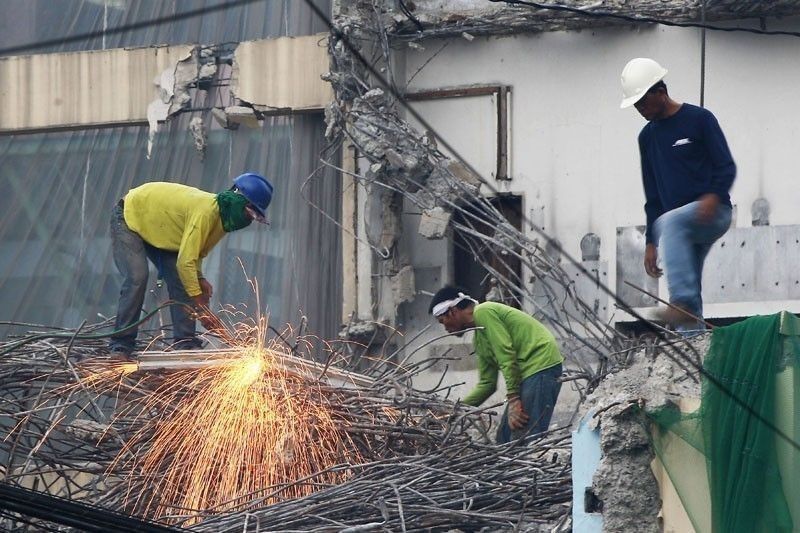COVID-19 causes massive drop in workers’ income

MANILA, Philippines — Income among Filipinos and other workers worldwide has dropped significantly due to the coronavirus disease pandemic, according to the International Labor Organization (ILO).
The latest ILO assessment of the labor market impact of COVID showed a “massive” drop in labor income and a fiscal stimulus gap that threatens to increase inequality between rich and poor countries.
The ILO estimated that global labor income declined by 10.7 percent or $3.5 trillion, in the first three quarters of 2020, compared with the same period in 2019. The figure excludes income support provided through government measures.
The biggest drop was recorded in lower-middle income countries, where the labor income losses reached 15.1 percent, with the Americas the hardest hit region at 12.1 percent.
The pandemic, the ILO said, resulted in devastating losses of working hours and brought massive decline in income for workers worldwide.
Global working hour losses in the first nine months of 2020, the ILO said have been “considerably larger” than previously estimated.
The outlook for the last quarter has also worsened significantly with global working-hour losses now projected to amount to 8.6 percent in the fourth quarter of 2020 compared to Q4 2019.
One reason for the estimated increases in working-hour losses, the ILO said, is that workers in developing and emerging economies, especially those in informal employment, have been much more affected than by past crises.
The ILO noted that the drop in employment is more attributable to inactivity than to unemployment, with important policy implications.
“While many stringent workplace closures have been relaxed, there are significant variations between regions: 94 percent of workers are still in countries with some sort of workplace restrictions, and 32 percent are in countries with closures for all but essential workplaces,” the ILO said.
While fiscal stimulus packages have played a significant role in supporting economic activity and reducing the reduced working hours, ILO said they have been concentrated in high-income countries, as emerging and developing economies have limited capacity to finance such measures.
“In order for developing countries to reach the same ratio of stimulus to working hours lost as in high-income countries, they would need to inject a further $982 billion ($45 billion in low-income countries and $937 billion in lower-middle income countries),” ILO pointed out.
The stimulus gap for low income countries amounts to less than 1 percent of the total value of the fiscal stimulus packages announced by high-income countries.
ILO said the huge “fiscal stimulus gap” is even more worrying in the light of social protection deficits in many developing countries. Some of these countries have also had to redirect public spending from other objectives in order to mitigate the labor market impact of the crisis.
“Just as we need to redouble our efforts to beat the virus, so we need to act urgently and at scale to overcome its economic, social and employment impacts. That includes sustaining support for jobs, businesses and incomes,” ILO Director-General Guy Ryder said.
Ryder said there is pressing need for the international community to set out a global strategy for recovery through dialogue, cooperation and solidarity.
Fears of mass displacement allayed
Meanwhile, the Department of Labor and Employment (DOLE) has allayed fears of massive displacement of workers due to the European Union threat to cancel the trading privileges granted to the Philippines.
Labor Secretary Silvestre Bello said the country is likely to continue enjoying the trading privileges since it has been compliant with the fundamental requirements and processes under the Generalized Scheme of Preferences Plus (GSP+).
“We are confident that the European Commission will find no valid and convincing reason to withdraw such privileges,” Bello pointed out.
He said there is no basis to what doomsayers describe as imminent loss of about 200,000 jobs for Filipino workers as a result of the possible GSP+ withdrawal.
“We fared well in the country report to the European Commission which provides a scorecard of Philippine compliance with 27 international conventions,” he stressed.
Bello said the country report is an inter-agency effort, where DOLE actively participates in the process of providing updates and factual evidence, particularly on matters pertaining to the observance of labor rights.
The Philippines, he noted is the only country in the ASEAN that ratified eight fundamental conventions with respect to labor — Freedom of Association and Protection on the Right to Organize Convention, Right to Organize and Collective Bargaining Convention, Forced Labor Convention, Abolition of Forced Labor Convention, Minimum Age Convention, Worst Forms of Child Labor Convention, Equal Remuneration Convention, and Discrimination (Employment and Occupation) Convention.
“Our government is doing its best to comply with all the EU GSP+ requirements in promoting the welfare of workers. Among them are the adoption of measures such as the Occupational Safety and Health Law, Expanded Maternity Benefit Leave, Anti-Age Discrimination in Employment,” Bello added.
He said the government even recorded milestones in protecting and promoting the rights andwelfare of Filipino workers, both locally and overseas.
“These are just some of the significant policies in support of the labor rights in the country and we will be relentless in this undertaking,” he said.
- Latest
- Trending



























